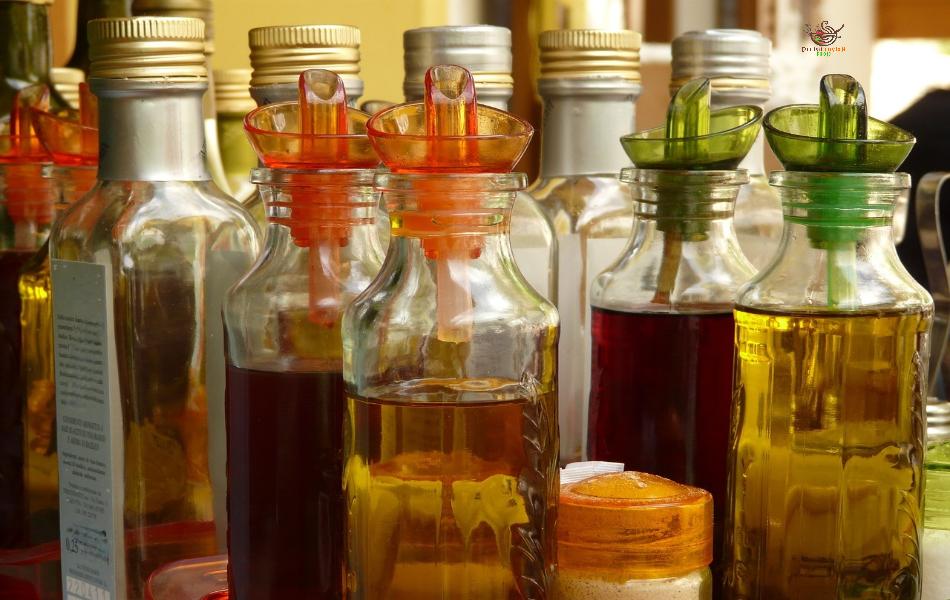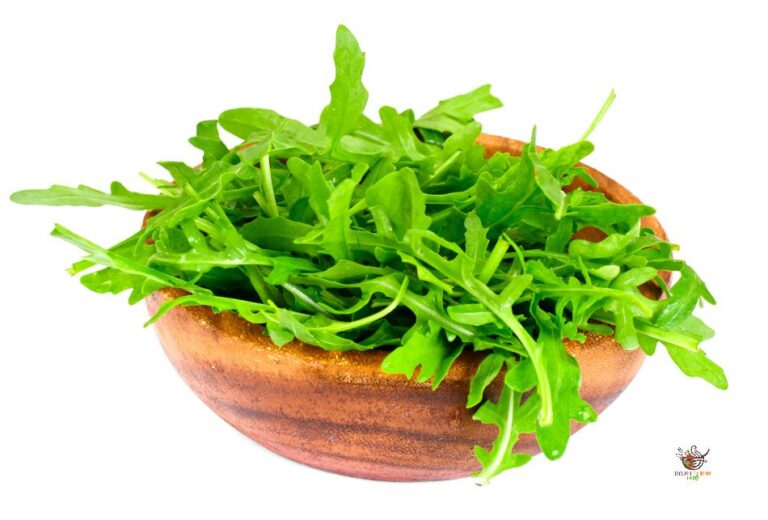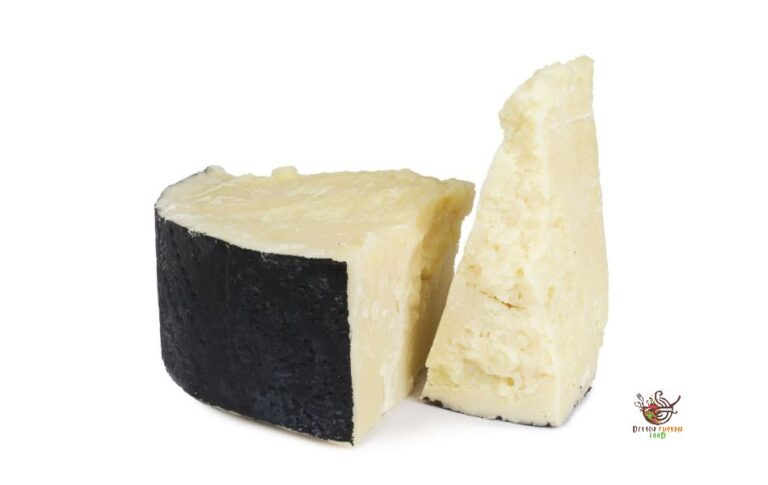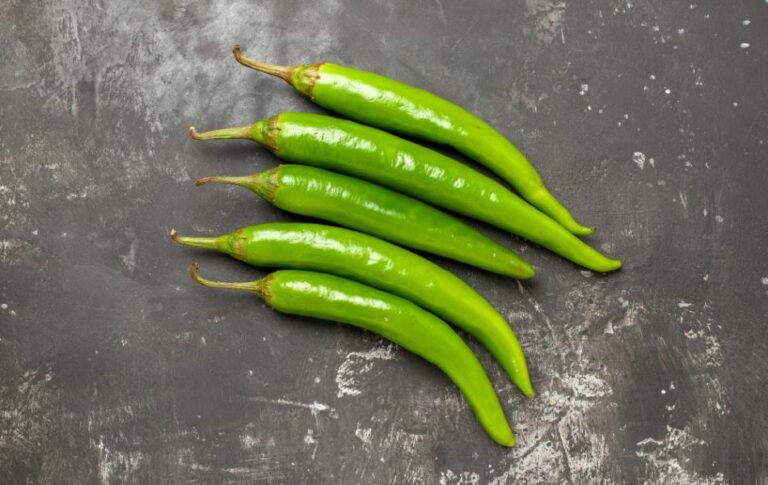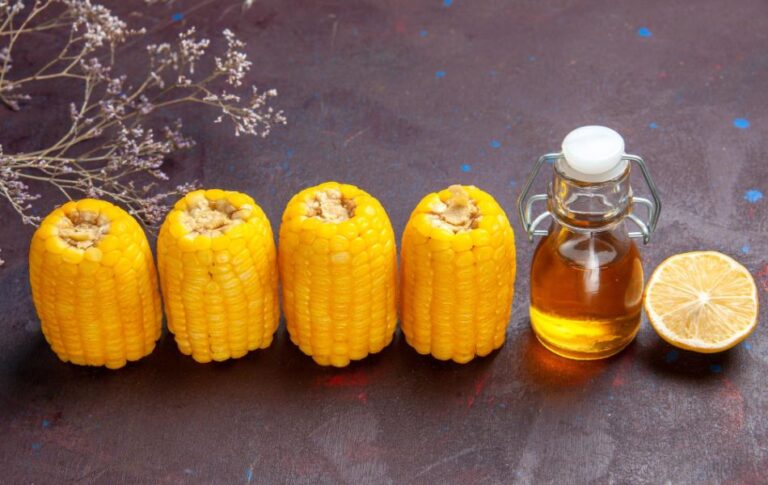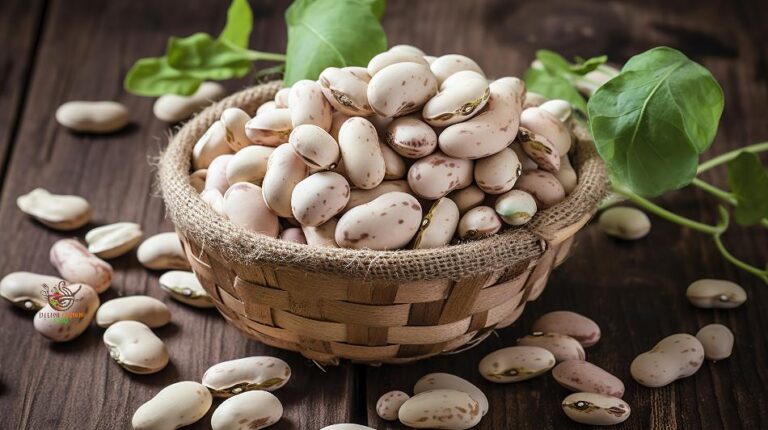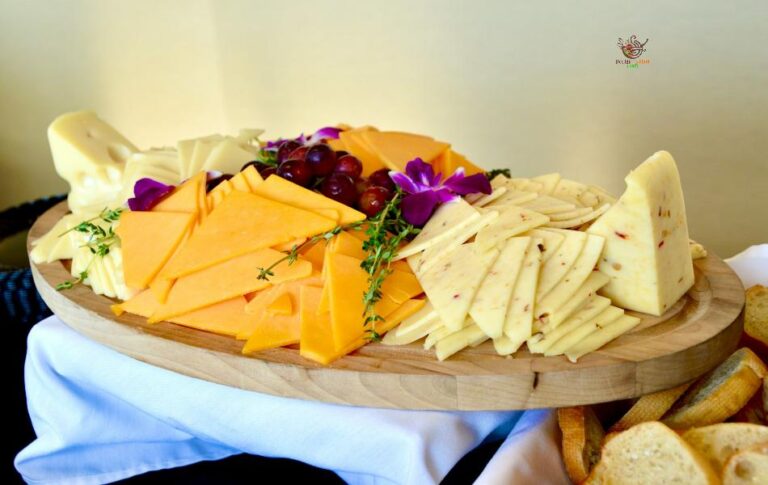13 Best Champagne Vinegar Substitutes
If you enjoy cooking, champagne vinegar can add a delicious touch to both creamy salads and savory dishes. If you run out of champagne vinegar while making your favorite vinaigrette, don’t worry! Some excellent substitutes in your pantry can work just as well.
What is Champagne Vinegar?
Champagne vinegar is a vinegar variant crafted from grapes cultivated in the Champagne region of France. This vinegar is produced by pressing the grapes into juice, fermenting it into wine, and then aging it in oak barrels for several months to enhance its taste.
Distinguished by its unique sweetness and fruitiness, champagne vinegar stands out from other vinegar types. Characterized by its light color and delicate flavor, it is a preferred choice for various culinary uses.
With a moderate acidity level, champagne vinegar is less harsh than certain other vinegar types, making it an ideal choice as a base for salad dressings or marinades. Its gentle acidity ensures that it enhances rather than overwhelms the natural flavors of the food.
The meticulous production process involves careful attention to detail to ensure the resulting vinegar mirrors the complexity and sophistication of Champagne wine. Due to the high-quality ingredients and time-intensive methods employed, authentic champagne vinegar can be relatively expensive. Nevertheless, its exceptional flavor makes it a worthwhile addition to your culinary repertoire.
Flavor Profile of Champagne Vinegar
Champagne vinegar stands out for its unique blend of sweetness, fruitiness, and acidity. Derived from grapes used in champagne, it boasts a subtle sweetness that complements its tartness. This delicate sweetness enhances salads and marinades without overpowering the flavors. The fruity notes, more floral than other vinegars, add a nuanced, perfumed quality to dishes. Its acidity, with a pH level of 2.3 to 3.5, balances rich foods without being harsh, making it a culinary gem that elevates various dishes with its perfect sweet and tart harmony.
Substitute for Champagne Vinegar
Champagne vinegar adds acidity to recipes, and for a replacement, consider other vinegar types with alcohol content like spirit vinegar. They maintain the desired sharpness in dishes like vinaigrettes or marinades.
1. White Wine Vinegar
White wine vinegar and champagne vinegar are often used interchangeably in various recipes. Although white wine vinegar is more acidic and less fruity, it makes a suitable replacement for champagne vinegar.
Made through the fermentation and oxidation of white wine, white wine vinegar has a mildly fruity flavor and is renowned for enhancing salads and dishes. In addition to its culinary uses, white wine vinegar is effective at neutralizing odors, such as the lingering smell of onions. Its high acidity and less sweet profile make it an ideal substitute for champagne vinegar.
When cooking, substituting one tablespoon of champagne vinegar with an equal amount of white wine vinegar will yield nearly the same results.
2. Sherry Vinegar
Sherry vinegar, akin to white wine vinegar, stands as a gourmet wine vinegar originating from the Spanish province of Cádiz, where its production undergoes meticulous quality control. Sherry vinegar undergoes an aging process, and the duration is distinguished by specific terminology indicating the time it spends in wood.
A distinctive feature of Sherry vinegar lies in its nutty and caramel-like flavor profile. This unique taste is a result of the aging process, during which Sherry wine oxidizes over time, contributing to the development of a rich and complex flavor.
Sherry vinegar is known for its tangy acidity and subtle sweetness, setting it apart from other vinegars like red or white wine. It adds a unique blend of flavors to dishes such as roasted vegetables or meats, offering depth without overwhelming the main ingredients.
Its popularity extends to French and Spanish cuisine, making it a superb substitute for champagne vinegar. Expect a darker hue compared to champagne, and note potential variations in acidity or dryness. When replacing champagne vinegar with sherry vinegar, consider using a slightly reduced amount to maintain a well-balanced flavor.
3. Rice Wine Vinegar
Rice wine vinegar boasts a subtle flavor and a light color, making it an excellent substitute for champagne vinegar. Its mild taste and pleasing acidity provide the desired tartness for various culinary applications.
Rice vinegar and rice wine vinegar differ from each other. Rice vinegar is produced by fermenting sugar into alcohol and then converting it to an acidic state, followed by dilution and cooking to reduce acidity further.
It’s sweeter and less acidic than rice vinegar and has an alcohol content of 18-25%.
Rice wine vinegar comes in two types: “seasoned” and “regular.” The seasoned version has more sugar and salt, so if using it instead of champagne vinegar, reduce your recipe’s sugar by about four tablespoons and salt by two teaspoons.
4. Apple Cider Vinegar
Apple cider vinegar, known for its tangy and slightly fruity profile, is commonly used in dressings. It is a suitable alternative to champagne vinegar.
Apple cider vinegar is a bit tangier than champagne vinegar but still adds a sweet, fruity touch to dishes. Use it for dressings or to enhance the flavor of fish, meat, or vegetables.
You can get apple cider vinegar in filtered or unfiltered types. Both are created from the ‘mother,’ a substance with cellulose and friendly bacteria. This is what changes apple juice into vinegar.
Filtered apple cider vinegar is often pasteurized and lacks the mother substance. In contrast, unfiltered apple cider vinegar contains small amounts of the mother and is typically organic and unpasteurized.
Apple cider vinegar has a sharper taste than champagne vinegar, so use it sparingly to prevent overpowering your dish.
5. Chardonnay Vinegar
Chardonnay vinegar is an excellent option for those who enjoy the taste of champagne vinegar and seek a suitable substitute. Similar to champagne vinegar, Chardonnay vinegar is crafted from wine, specifically using Chardonnay grapes.
Chardonnay vinegar is a light, fruity option with a hint of oakiness, perfect for salads and delicate dishes. It’s milder than champagne vinegar due to lower acidity.
Chardonnay vinegar has a complex and subtle flavor with hints of vanilla, pear, and apricot, making it great for nuanced dressings and marinades.
Moreover, it’s ideal for deglazing pans after cooking chicken or fish, eliminating caramelized bits.
6. Red Wine Vinegar
With its distinctive tangy taste, red wine vinegar is a key component of Mediterranean cuisine. Crafted through the fermentation of wine, it undergoes aging before bottling to mellow its flavor. Ideal for vinaigrettes, marinades, and pickling, red wine vinegar serves as a suitable replacement for champagne vinegar. During the fermentation process, most, if not all, of the alcohol content from red wine is removed. Despite its robust flavor, red wine vinegar makes a superb alternative to champagne vinegar, introducing a subtle variation to the taste of your dishes.
7. Balsamic Vinegar
Balsamic vinegar, with its deep and rich character, is a popular choice for salad dressings. While it boasts a tangier flavor, it harmonizes well with meat, fish, vegetables, and salad dressings, making it a viable substitute. Although the tastes are not identical, balsamic vinegar still excels in crafting delicious salad dressings and complementing meats and veggies. To replace champagne vinegar, you can use balsamic vinegar in equal quantities.
There are two main types: traditional balsamic vinegar, made solely from grape must, drawn from fresh grapes, boiled to concentrate, fermented, acidified, and aged for at least 25 years; and modern commercial balsamic vinegar.
8. Herb Vinegar
Herb vinegar, available in various flavors or homemade, can serve as a substitute for champagne vinegar. Options like oregano or basil herb vinegar, based on white vinegar like champagne vinegar, add depth to fish, meats, and dressings. While not as sweet, you can enhance herb vinegar’s flavor by stirring in a teaspoon of honey or sugar.
9. Persimmon Vinegar
Persimmon vinegar, featuring a fruity aroma, subtle peppery flavor, and intense acidity, makes a reliable alternative to champagne vinegar when emphasizing a fruity taste. With a fragrance reminiscent of wine, it seamlessly fits into applications where champagne vinegar is used. Popularly known as gam sikcho in South Korea, it finds its place in dishes like eggs or over beans.
10. Raspberry Vinegar
Raspberry vinegar, flavored with raspberries, has a sweet and fruity taste. It’s a nice substitute for champagne vinegar in salads and meats, adding a pleasant fruitiness to dressings. You can buy it or make it at home by steeping white vinegar with raspberries.
11. Coconut Vinegar
Coconut vinegar, belonging to the palm vinegar family, is a common ingredient in Southeast Asian cuisine. It is popular in the Philippines as sukang tuba, derived from palm wine production. This vinegar, with its sharp acidity and faint fruity notes, makes a suitable alternative to champagne vinegar in marinades or sauces. Its fragrant tang can also bring a lively kick to soups.
12. Homemade Champagne Vinegar
Create champagne vinegar at home without complex equipment:
Ingredients:
- Champagne
- Fruity, non-alcoholic vinegar (e.g., apple cider)
- Water
Steps:
- Allow champagne to go flat to prevent excess gases.
- Combine 750 ml champagne with one cup of water.
- Seal with cheesecloth, secure with rubber bands, and ferment in a cool place for 1-3 months.
- Taste after one month; continue fermenting if needed.
- Strain into bottles to separate from the ‘mother,’ a bacteria clump formed in fermentation.
- Keep at room temperature. Use a turkey baster to extract the mother if desired.
- Perfect for gifting or as a cost-effective substitute for store-bought champagne vinegar.
13. Lemon or Lime Juice
If you find yourself without vinegar on hand and don’t have time to wait for champagne vinegar to develop a quick and effective alternative is to use a splash of lemon or lime juice in your recipe. While it won’t capture the intricate floral and delicate notes of champagne vinegar, the fruity and sour qualities make it a suitable substitute. Given that citrus is a prevalent ingredient in marinades, sauces, and salad dressings, it seamlessly fits into the dish without missing a beat.
Conclusion
Champagne vinegar adds a luxurious floral and fruity touch to various dishes. When unavailable, consider substitutes like white wine vinegar, rice vinegar, sherry vinegar, coconut, persimmon, or red wine vinegar. Alternatively, you can use straight champagne or a squeeze of lemon/lime juice. For a DIY approach, making champagne vinegar at home is surprisingly straightforward.

